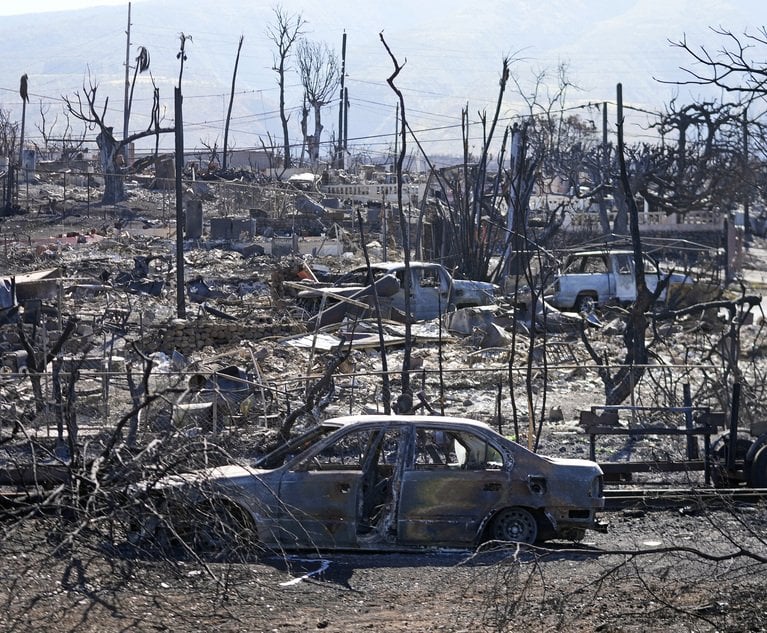 "Recovering from damages caused by wildfires is a daunting task for businesses and homeowners. As important as it is to prepare for these events before they occur, it is also vital to be prepared for what comes after," NICB President and CEO David Glawe said in a release. Credit: Rick Bowmer/AP
"Recovering from damages caused by wildfires is a daunting task for businesses and homeowners. As important as it is to prepare for these events before they occur, it is also vital to be prepared for what comes after," NICB President and CEO David Glawe said in a release. Credit: Rick Bowmer/AP
As the residents of Maui continue to grapple with the toll from the island's recent wildfire, which was one of the worst in U.S. history, the National Insurance Crime Bureau (NICB) is warning policyholders to be on the watch for unscrupulous contractors looking to hit vulnerable targets in the wake of the disaster.
Recommended For You
Want to continue reading?
Become a Free PropertyCasualty360 Digital Reader
Your access to unlimited PropertyCasualty360 content isn’t changing.
Once you are an ALM digital member, you’ll receive:
- Breaking insurance news and analysis, on-site and via our newsletters and custom alerts
- Weekly Insurance Speak podcast featuring exclusive interviews with industry leaders
- Educational webcasts, white papers, and ebooks from industry thought leaders
- Critical converage of the employee benefits and financial advisory markets on our other ALM sites, BenefitsPRO and ThinkAdvisor
Already have an account? Sign In Now
© 2025 ALM Global, LLC, All Rights Reserved. Request academic re-use from www.copyright.com. All other uses, submit a request to [email protected]. For more information visit Asset & Logo Licensing.








